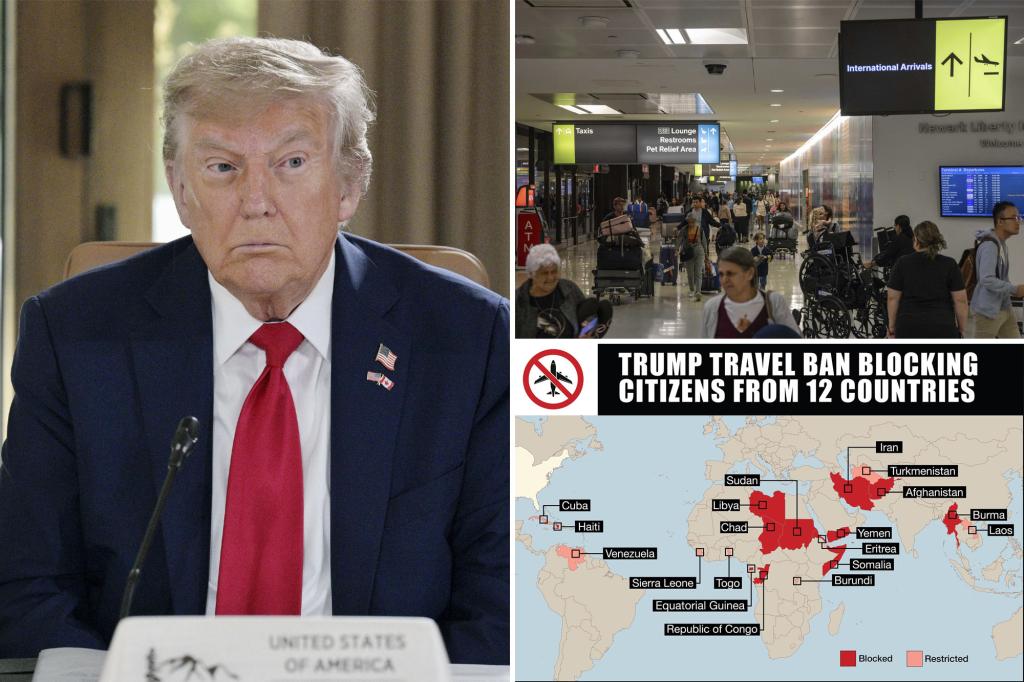
WASHINGTON, D.C. – The Trump administration is contemplating a significant expansion of its travel restrictions, potentially barring citizens from 36 additional countries from entering the United States, according to an internal State Department cable obtained by Reuters.
Immediate Impact
Earlier this month, President Donald Trump signed a proclamation banning entry from 12 countries, citing the need to protect the U.S. from “foreign terrorists” and other national security threats. This new consideration marks a continuation of the administration’s immigration crackdown, initiated at the start of Trump’s second term.
Key Details Emerge
The internal diplomatic cable, signed by U.S. Secretary of State Marco Rubio, outlines a dozen concerns about the countries in question and demands corrective action. The document states, “The Department has identified 36 countries of concern that might be recommended for full or partial suspension of entry if they do not meet established benchmarks and requirements within 60 days.”
The cable was first reported by the Washington Post.
Concerns Raised
The State Department highlighted several issues, including the lack of competent governments to produce reliable identity documents and the “questionable security” of some countries’ passports. Additionally, some nations are reportedly uncooperative in the removal of their nationals from the U.S. and have citizens overstaying visas.
“We are constantly reevaluating policies to ensure the safety of Americans and that foreign nationals follow our laws,” a senior State Department official commented, declining to discuss specific deliberations.
By the Numbers
- 12 countries affected by the initial ban earlier this month.
- 36 countries potentially facing new travel restrictions.
- 60 days for countries to meet U.S. requirements to avoid the ban.
Background Context
The potential expansion follows a 2018 Supreme Court ruling that upheld an earlier travel ban targeting seven Muslim-majority nations. The administration’s current immigration policy also includes the deportation of Venezuelans suspected of gang affiliations and efforts to limit foreign student enrollment in U.S. universities.
Countries Under Scrutiny
The countries facing possible travel restrictions include Angola, Antigua and Barbuda, Benin, Bhutan, Burkina Faso, Cabo Verde, Cambodia, Cameroon, Cote D’Ivoire, Democratic Republic of Congo, Djibouti, Dominica, Ethiopia, Egypt, Gabon, The Gambia, Ghana, Kyrgyzstan, Liberia, Malawi, Mauritania, Niger, Nigeria, Saint Kitts and Nevis, Saint Lucia, Sao Tome and Principe, Senegal, South Sudan, Syria, Tanzania, Tonga, Tuvalu, Uganda, Vanuatu, Zambia, and Zimbabwe.
What Comes Next
The timing of this potential policy shift is significant, as it coincides with ongoing global discussions on immigration and national security. The administration continues to emphasize its commitment to protecting U.S. citizens and maintaining stringent national security standards.
As the 60-day deadline approaches, diplomatic negotiations and international reactions will likely intensify. The global community awaits further developments and potential diplomatic responses from the countries affected by the proposed travel restrictions.





